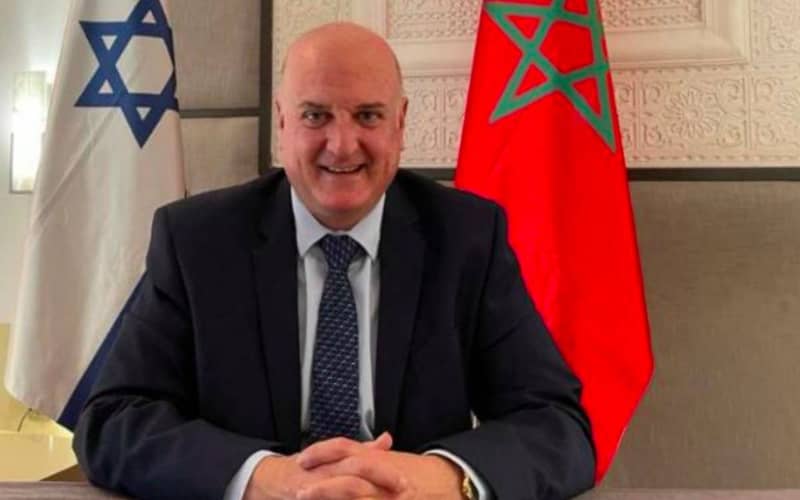Israel-Morocco Relations Cool as Ambassador Absent from Royal Ceremony

The absence of David Govrin, head of Israel’s liaison office in Morocco who has not yet presented his credentials to King Mohammed VI at the ceremony for receiving foreign ambassadors by the sovereign, raises questions. A year after the normalization of diplomatic relations between Morocco and Israel, is the magic of the beginnings beginning to fade?
David Govrin had revealed on his Twitter account on October 10 that he had been appointed ambassador of Israel to Morocco, but he has not yet presented his credentials to King Mohammed VI. On Tuesday, the Israeli diplomat was conspicuous by his absence from the ceremony to receive foreign ambassadors by the sovereign, which took place at the royal palace in Rabat. An absence that has raised questions.
Questioned during a press conference last Thursday, Mustapha Baitas, spokesman for the Moroccan government, tried to justify the absence of the head of Israel’s liaison office in Rabat by protocol issues. "To answer the question about the ambassadors, I can say that Morocco respects the provisions of the Vienna Convention on Diplomatic Relations, which governs all protocols related to this field," he said, without giving further details.
"Rabat’s reluctance on Govrin’s status (ambassador of Israel) is probably due to the indecision of the Biden administration on the recognition by the United States of Morocco’s sovereignty over Western Sahara," said a political scientist anonymously to The New Arab. "While the Biden administration continues to hesitate to express recognition [of Morocco’s sovereignty over Western Sahara] and to build the promised consulate in Dakhla, Morocco will not go any further in normalization nor say more about Govrin’s actual position," he added.
Under the aegis of the United States, Morocco normalized its diplomatic relations with Israel on December 10, 2020 in exchange for the American recognition of the kingdom’s sovereignty over the Sahara. Morocco controls 80% of the Sahara considered a "non-self-governing territory" by the UN and proposes broad autonomy under its sovereignty. The Polisario Front, protected by Algeria, for its part, demands a self-determination referendum.
Related Articles
-

Moroccan Cities Clash: Wedding Halls Spark Noise Pollution Crisis and Human Rights Debate
4 September 2025
-

Rif Protest Leader Zefzafi Breaks Silence: Patriotic Speech at Father’s Funeral Stirs Al Hoceima
4 September 2025
-

Illegal Beach Sand Mining Near Tangier Sparks Environmental and Economic Outcry
4 September 2025
-

Surveillance Footage Exposes Tourist Robbery Ring in Tangier Court Drama
4 September 2025
-

Rif Protest Icon’s Father Dies: Ahmed Zefzafi’s Passing Reignites Hirak Movement Debate
3 September 2025